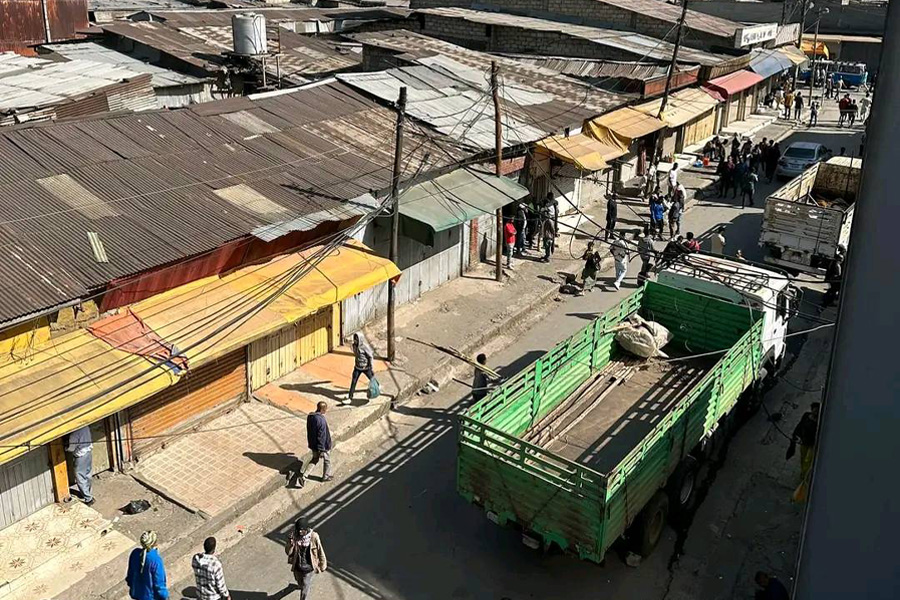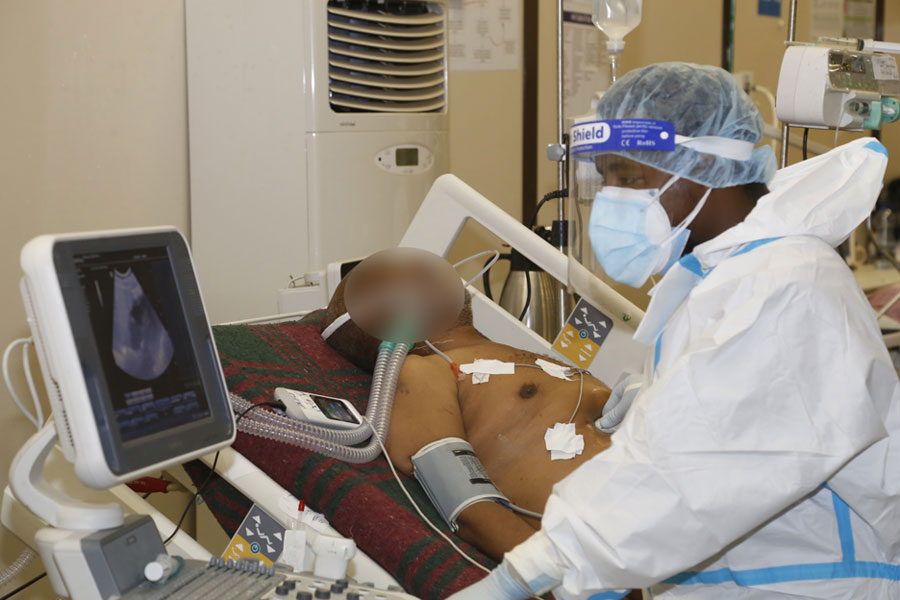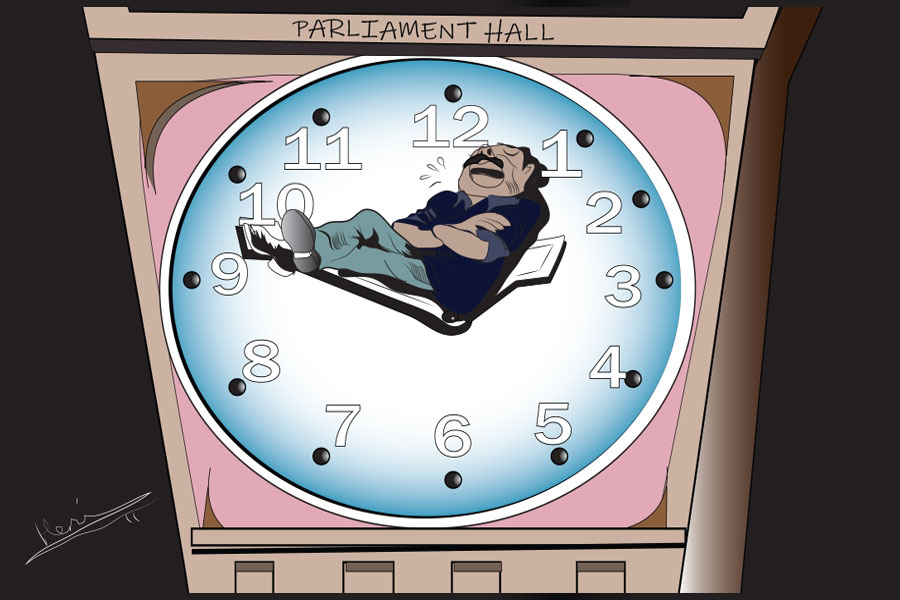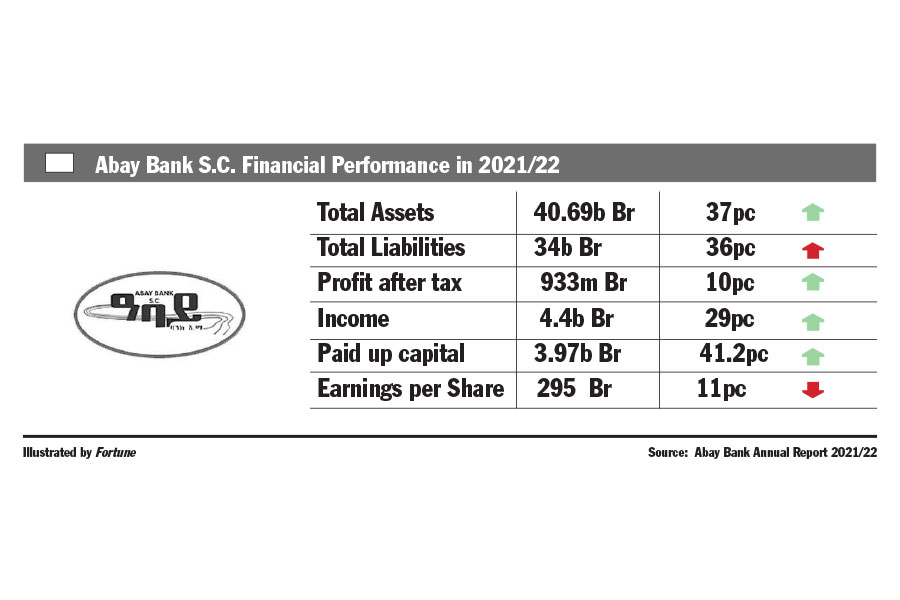
Editorial | Apr 16,2022
The leading figures of the banking industry stood in a semi-circle to listen to a speech being given by Abie Sano, president of Oromia International Bank and the Ethiopian Bankers' Association, at a small party held at Hilton Addis last Friday. The get together was held to express farewells to Addisu Haba and Taye Dibekulu, former presidents of Debub Global and United Bank, respectively. The former also served as president of the Banker’s Association before Abie took over last year.
The industry leaders held a general assembly meeting of the almost two-decade-old Association on the same day before heading to the farewell party. Abie thanked the two former presidents’ dedication to the industry and invited each one of the attendees to give brief speeches about them before the night went on in a quite jovial mood.
The banking industry nonetheless does not find itself in as upbeat a mood. Over the past few months, the banks have been hit with a liquidity crisis. With around six billion Birr in uncleared cheques between the banks, the problem has inconvenienced depositors and worried the National Bank of Ethiopia (NBE) over the impact this will have on the economy.
The central bank responded by requiring the commercial banks to submit a detailed list of their cash flows and loans by last week and warned that it would take measures until they address the crisis. It also identified nine banks with having a liquidity ratio below the minimum requirement and gave them last Friday as a deadline to address it.
Experts though believe that the problem started at least partially at the central bank. Although most of the banks were guilty of disbursing long-term loans and relying on short-term deposits, argue the experts, the regulator was also at fault for tacking on the 27pc NBE bill private banks were required to buy for almost the entirety of the past decade.
“This has never been seen in the past 20 years,” said a former regulator who wanted to remain anonymous. "It is severe and risky."
You can read the full story here
PUBLISHED ON
Feb 01,2020 [ VOL
20 , NO
1031]

Editorial | Apr 16,2022

Fortune News | Jul 11,2021

Agenda | Apr 03,2021

Films Review | Jun 20,2020

Fortune News | Nov 24,2024

Fortune News | Apr 03,2021

Fortune News | Mar 16,2019

Editorial | Apr 26,2019

Fortune News | Mar 18,2023

View From Arada | Sep 04,2021

Dec 22 , 2024 . By TIZITA SHEWAFERAW
Charged with transforming colossal state-owned enterprises into modern and competitiv...

Aug 18 , 2024 . By AKSAH ITALO
Although predictable Yonas Zerihun's job in the ride-hailing service is not immune to...

Jul 28 , 2024 . By TIZITA SHEWAFERAW
Unhabitual, perhaps too many, Samuel Gebreyohannes, 38, used to occasionally enjoy a couple of beers at breakfast. However, he recently swit...

Jul 13 , 2024 . By AKSAH ITALO
Investors who rely on tractors, trucks, and field vehicles for commuting, transporting commodities, and f...

Nov 1 , 2025
The National Bank of Ethiopia (NBE) issued a statement two weeks ago that appeared to...

Oct 25 , 2025
The regulatory machinery is on overdrive. In only two years, no fewer than 35 new pro...

Oct 18 , 2025
The political establishment, notably the ruling party and its top brass, has become p...

Oct 11 , 2025
Ladislas Farago, a roving Associated Press (AP) correspondent, arrived in Ethiopia in...